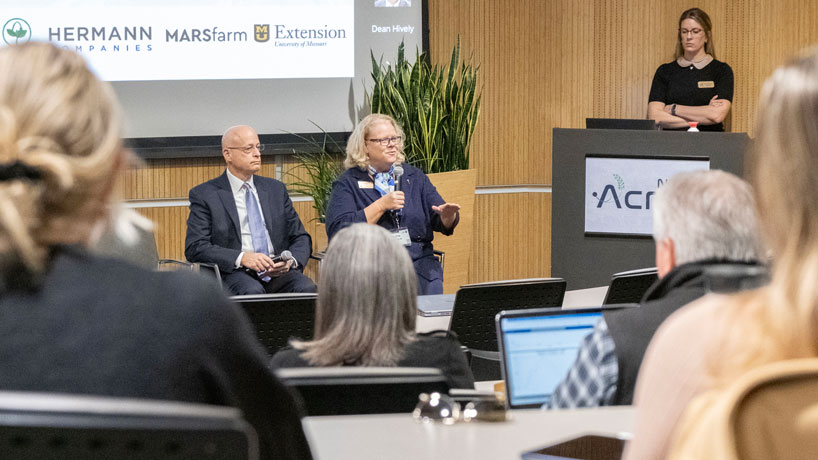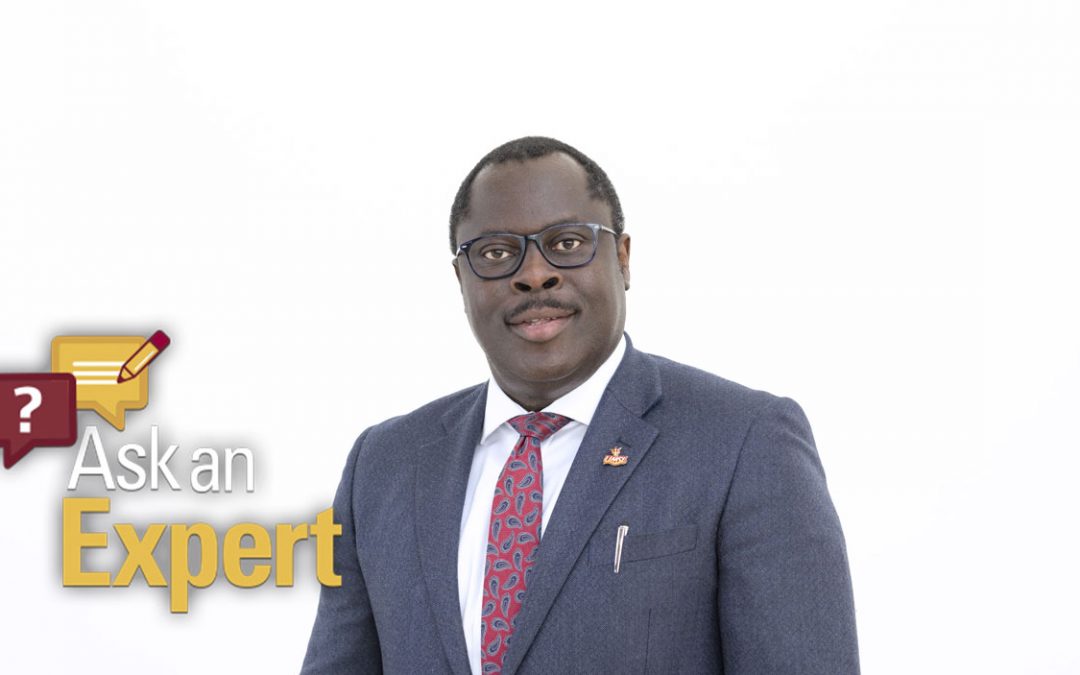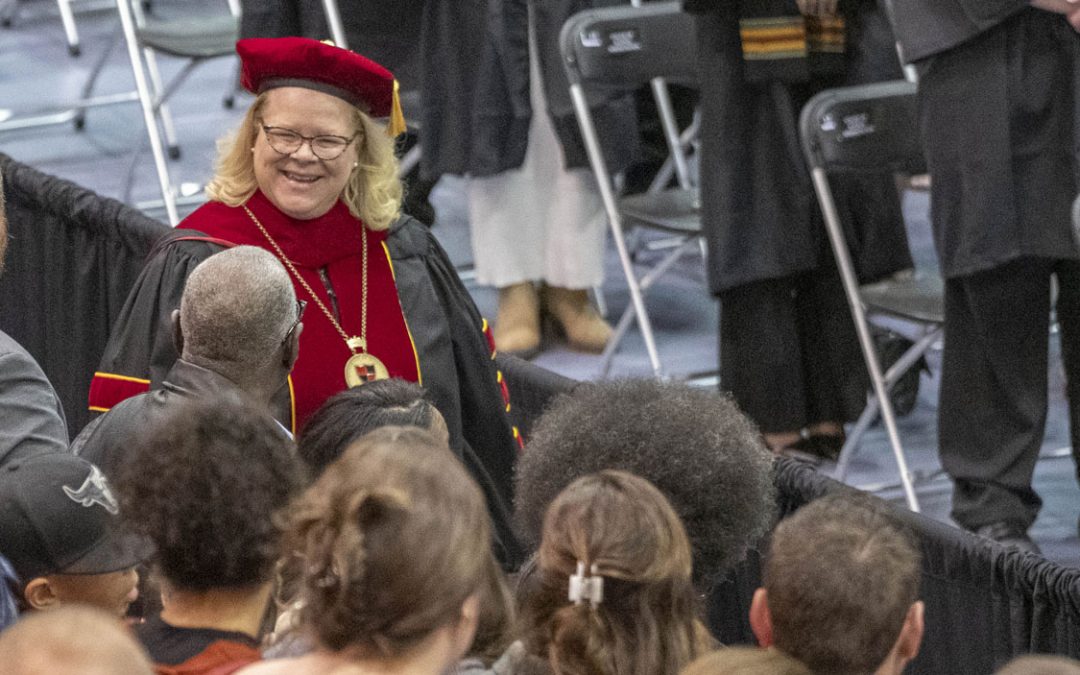
UMSL Chancellor Kristin Sobolik speaks during a special discussion, “Reflections & Commentary: How Can the Agriculture Technology Industry and NASA Acres Support One Another’s Missions?” during a NASA Acres kickoff meeting at the Donald Danforth Plant Science Center Thursday morning. (Photo by Derik Holtmann)
The United States is one of the world’s largest producers and exporters of agricultural products, and farming provides a stable income source for millions of individuals and rural communities across the country.
However, the agriculture industry is facing unprecedented challenges related not only to climate change but also the global supply chain. In recognition of these challenges, NASA established NASA Acres this year.
The U.S.-focused agriculture and food security consortium brings together top scientists and practitioners from multiple disciplines to support U.S. farmers, ranchers and policy makers in their efforts to sustainably meet the growing demand for food while safeguarding the environment.
More than 50 consortium partners gathered at the Donald Danforth Plant Science Center in St. Louis County Thursday morning for an inaugural kickoff meeting, marking the first consortium-wide gathering since its formal launch in April.
As part of the morning’s programming, University of Missouri–St. Louis Chancellor Kristin Sobolik took part in a special discussion, “Reflections & Commentary: How Can the Agriculture Technology Industry and NASA Acres Support One Another’s Missions?” Joining her on the panel were Vasit Sagan, deputy director of the Taylor Geospatial Institute; Steve Rosenzweig, agriculture science at General Mills; and Mark Baxa, CEO and president of the Council of Supply Chain Management Professionals.
Alyssa Whitcraft, executive director of NASA Acres, set the stage by explaining how NASA Acres is harnessing the power of satellite Earth observation technology to provide actionable insights and data-driven solutions to farmers and decision-makers, enabling more sustainable, productive and resilient agricultural practices.
The discussion emphasized ways the private sector, higher education institutions and innovation in the geospatial field can support NASA Acres in achieving that mission.
“As you may know, 66% of Missouri’s land is in agriculture,” Sobolik said. “We are here as the premier public, urban metropolitan university in the region, making sure then that we’re also focusing on what we can do to advance that type of technology and forward thinking in the metropolitan and urban space as well. So, we’re taking a look at things like controlled environmental agriculture, but we’re not doing that by ourselves. We’re doing that with our partners.”
Sobolik highlighted UMSL’s collaborative work across the state, particularly with the Missouri legislature.
“We need people that are on the ground, helping make policy to help fund the things that are important and helping guide us in how to best position our assets to bear,” she said. “That’s why Sen. Brian Williams has been a great advocate for our region and the state. That’s exactly the kind of partnership that we all collectively need when we’re moving things forward.”
NASA Acres, which is led by the University of Maryland, is working with more than 25 research, development and extension partners at nine other universities and more than 35 collaborative partners across several sectors to share knowledge.
“What we want to accomplish is richer knowledge about past and present agricultural land use, productivity and sustainability,” Whitcraft said. “Additionally, more tools that use satellite-based Earth observations in the hands of farmers, ranchers and other agri-food-system actors. Then a stronger agricultural technology workforce that’s ready to tackle the challenges of climate change and global hazards.”
Baxa noted that the COVID-19 pandemic underscored the importance of the global supply chain, while Rosenzweig touched on the growing investment in projects aimed at meeting climate goals. He said farmers involved with these projects need to be provided the resources to change practices, while also being able to effectively measure the impact of those changes.
“That’s really where I see a sweet spot for these Earth observation and modeling tools – to be able to help minimize that farmer data burden, make these programs far simpler and easier for farmers to access, but also increase the rigor of our reporting and understanding what the impacts of these changes on farms are,” Rosenzweig said.
Sagan closed the discussion by calling for increased cooperation between academia and industry. He said university researchers must be able to convert their research into practical applications in the private sector, and in turn, private companies must support the universities training the future workforce.
“In many cases, my best students are taken by industry,” Sagan said. “That’s great. But who’s going to stay in academia to train the next best student you need, right? That’s where industry, in my view, has a responsibility and a part to play. You invest in a fellowship or in resources to work together to train the workforce.”














